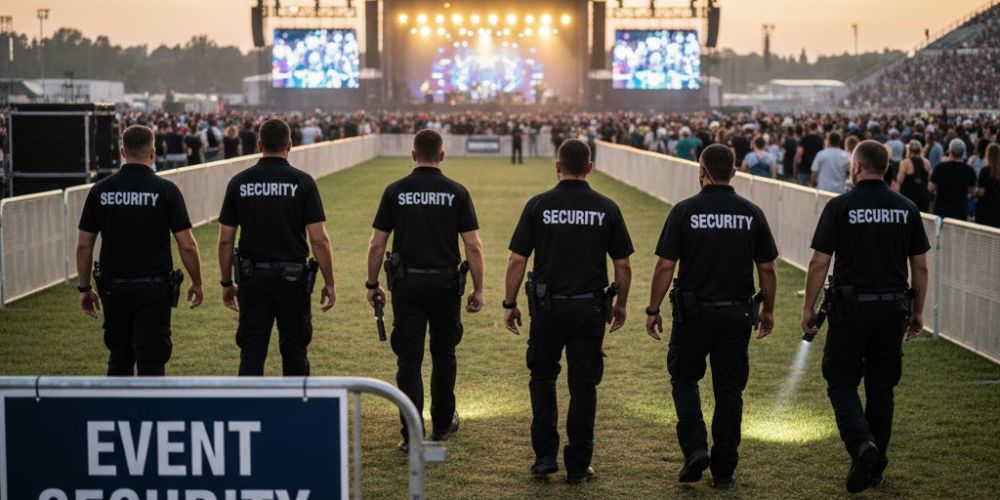To safeguard your home with reliable security during an event, follow these steps Install Smart Surveillance, Use Access Control Systems, Secure Entry Points, Communicate with Neighbors or Security Staff, and Test Emergency Measures.
1. Install Smart Surveillance
Start by setting up high-resolution security cameras around key areas such as your front door, back entrance, and parking area. Modern smart systems allow you to monitor your home in real time through your phone. During an event, this helps you check for any suspicious activity instantly, even when you’re away.
2. Use Access Control Systems
Use electronic locks, smart keypads, or biometric access controls to restrict who can enter your home. These systems ensure that only authorized individuals have access. If you’re hosting an event, assign temporary digital codes for guests or staff and disable them afterward to maintain security.
3. Secure Entry Points
Inspect all doors and windows before the event. Reinforce them with deadbolt locks or security bars. Use motion sensors on vulnerable entry points so that you receive instant alerts if someone tries to tamper with them. This minimizes the risk of break-ins while your attention is elsewhere. if you have any security concerns and are seeking protection for your property and valuable assets, then be sure to take our security services in San Fernando, and our team will map out a security plan based on your property size.
4. Communicate with Neighbors or Security Staff
If you’re attending or hosting an event away from home, inform a trusted neighbor or your unarmed security guard about your absence. They can monitor any unusual movement and respond quickly in case of emergencies. Communication creates an extra safety layer that’s often overlooked.
5. Test Emergency Measures
Before the event, test your alarm systems, smoke detectors, and motion sensors. Ensure backup power is available for your security system in case of an outage. Having these measures ready means that even during unexpected circumstances, your home remains protected without interruption.
What Are the Event Security Checklist For Your Home?
The most effective event security checklist for your home includes these steps: Inspect Entry Points, Set Up Surveillance Systems, Access Control for Guests and Staff, Secure Valuables and Sensitive Areas, Check fire alarm security, and Inform Local Security or Neighbors.
1. Inspect Entry Points
Start by checking all doors, windows, and gates to ensure they’re locked and in good condition. Replace weak locks with deadbolts and make sure sliding doors have security bars. This helps you prevent unauthorized access during the event when people may come and go frequently.
2. Set Up Surveillance Systems
Install or test your CCTV cameras before the event. Make sure they cover all critical areas such as entrances, driveways, and outdoor gathering spots. Keep your monitoring system active throughout the event; even basic home cameras with live alerts can help you track activities in real time and deter trespassers. If you have security concerns related to the event security, then be sure to talk with Hyguard Services for all types of security services.
3. Control Access for Guests and Staff
Prepare a clear entry plan. Use a guest list or digital access codes to monitor who enters your property. If you’ve hired staff, issue temporary passes and brief them on which areas are restricted. This keeps the crowd organized and prevents strangers from wandering into private zones. For more control access around your premises, be sure to take our security services in San Francisco, and our team will facilitate controlled access based on your property.
4. Secure Valuables and Sensitive Areas
Store cash, jewelry, important documents, or any expensive equipment in a locked room or safe. If you’re hosting the event at home, designate one area for storage that only you can access. This ensures your valuables remain untouched, even with multiple people around.
5. Check Fire and Safety Equipment
Before the event starts, verify that your smoke detectors, fire extinguishers, and emergency lights are functioning. Also, keep clear exit routes and place signage if the event involves a large crowd. These safety checks can make a huge difference in case of a power failure or fire emergency.
6. Inform Local Security or Neighbors
Let your nearby security service, local patrol, or trusted neighbors know about the event schedule. Share emergency contacts and your phone number. This simple coordination helps ensure emergency response if anything unusual happens near your home.

